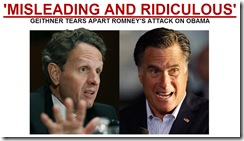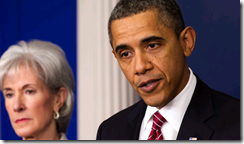This is a collection of articles, essays, blogs (or web logs), and news sources relating to what many are preceiving as “The Republican Conundrum”.
M. Ulric Killion writes,Photo Source: Paul Ryan gave speech on federal budget at Georgetown University; Power Panel: Child Labor and Catholics v. Paul Ryan. Young Turks, April 30, 2012. . . .Johnson is referring to a Republican ideology born out of the writings of the novelist Ayn Rand, which he characterizes as the “Republican Party’s embrace of Ayn Rand and her cruel philosophy.” What should concern an unsuspecting public, according to Johnson, “Disciples of Ayn Rand’s philosophy of selfishness now dominate the thinking of the leadership of the conservative movement and the Republican Party.” Demonstrating the seriousness and breath of the problem, he writes,“There is no way around it. Republican budget leader Rep. Paul Ryan says Rand is his guide. Senator Ron Johnson (R-WI) says Rand’s Atlas Shrugged is his ‘foundation book.’ Senator Rand Paul is named after her (or not). Clarence Thomas requires his law clerks to watch The Fountainhead. Fox News promotes Rand. Conservative blogs promote Rand. Glenn Beck has been promoting Rand for years. So has Rush. This isn’t recent, Alan Greenspan lived with the Rand cult and promoted and implemented her ideas”. . . .
M. Ulric Killion writes,Photo Source: The cover from the Politics section of the Huffington Post, April 15, 2012; Elise Foley, Timothy Geithner Calls Mitt Romney Claims ‘Misleading, ‘Ridiculous’, Huffington Post, April, 15, 2012. . . .In this respect, Geithner rightly characterized the Romney campaign as making “misleading and ridiculous” claims. Geithner also rightly maintains that by employing “misleading and ridiculous” claims, especially by political gaming with statistics, Romney and his campaign team effectually reduces the quality of debate over economic policy. . . .
M. Ulric Killion writes,
Photo Source: Sen. Ted Kennedy campaign ad in 1994; Jason Cherkis, Mitt Romney Also Attacked On Women’s Issue By Ted Kennedy’s ’94 Campaign (VIDEO), Huffington Post, April 11, 2012. . . .During this earlier period and in response to question about the hiring practices of Bain Capital, Willard is quoted as saying, “It’s a profession that has yet to attract many women and minorities.”
There are also, and quoting the Huffington Post, other sources, such as the Boston Global, which described the recruitment of women and minorities as being “almost exclusively white and male, adding that ‘there are no minorities among the 95 vice presidents of Bain & Co. Only 10 percent are women’”. . . .

Philip Stephens, FT, writes,The tone was set during David Cameron’s visit to Washington. Feted at the White House, Britain’s Conservative prime minister all but endorsed Mr Obama’s claim to a second term. Thumbing his nose at the Tory party’s American cousins he declined to meet Republican leaders. . . .What is striking, though, is just how far the Republicans have strayed from the centre-right mainstream of western politics. Something odd is happening when the world’s conservatives vote Democrat. . . .
- See also America’s three takes on the crisis

Edward Luce, FT, writes,The first, which virtually monopolises the Republican party and which we might label “purgative”, says Americans are being punished for Washington’s gluttony. Only when government stops taxing and over-regulating the wealth creators will animal spirits return. . . .The second, encompassing the Obama administration and the mainstream economics profession, we might label “restorative”. Their goal is to rekindle demand by means fiscal and monetary until the economy has reached the point where it needs no further help. . . .
- See also Dogging Mitt Romney
- See also Bam Goes After Big Oil
- See also Mitt Romney profiting from sales of security cameras to Chinese government
- See also The Republicans’ New Economic Doom Message – The “Oil Price Doom Message”

M. Ulric Killion writes,As for why their new doom message is shocking and incredulous, the fact that a U.S. president cannot set oil prices notwithstanding, the following articles will explain why this is so, and directly addresses the issues of the U.S. presidency and oil prices, which are the blog postings here, here, here, and here. . . .

Thomas L. Friedman, Op-Ed, New York Times, writes,Photo: Thomas L. Friedman, Josh Haner/The New York Times.It is an intriguing question, which raises another: What is American capitalism today, and what will enable it to thrive in the 21st century?. . . .When the private sector overwhelms the public, you get the 2008 subprime crisis. When the public overwhelms the private, you get choking regulations. You need a balance, which is why we have to get past this cartoonish “argument that the choice is either all government or all the market”. . . .The first is a grand bargain to fix our long-term structural deficit by phasing in $1 in tax increases, via tax reform, for every $3 to $4 in cuts to entitlements and defense over the next decade. If the Republican Party continues to take the view that there must be no tax increases, we’re stuck. Capitalism can’t work without safety nets or fiscal prudence, and we need both in a sustainable balance. . . .
- Green Jobs: Alternative fuels gain favor and could gas up 600,000 jobs
- Mitt Romney’s New Gaffe, “Poor Mouthing”, or Cluelessness? – The Test of Likability and Trust
- The U.S. surpassed Russia as world’s leading producer of dry natural gas in 2009 and 2010
- What War on Religion?
- Economics by Mitt Romney – The “Zisi”-Effect
- Welcome to the new China Bashing
- Big Oil’s Banner Year – Higher Prices, Record Profits, Less Oil
- When Debating the Auto Bailout, Consider Lehman’s Fate
- Has Political Discourse Hit Rock Bottom?
- Obama’s Accomodations to Religious Institutions – The Quiet Resolution of an ‘Ab Initio’ Non-Issue
- Further Media Miscellany
- Sandra Fluke Receives Call From Obama After Rush Limbaugh ‘Slut’ Comments
- Independent Poll Shows Most Americans want Obama’s Health Care Reforms and Contraception Coverage

M. Ulric Killion writes,Additionally, the poll results surprisingly demonstrate a division on the issue of contraception coverage along party lines and age, but not gender.Finally, and more importantly, the independent poll, like other polls, shows that most Americans actually want Obama’s health care reform law, including the controversial contraception coverage. . . .
M. Ulric Killion writes,When writing about Republicans, the new allegiance of Republican forerunners to “Personhood USA” (i.e., Newt Gingrich, Rick Santorum, Ron Paul, and Mitt Romney have pledged to pursue “personhood” at the federal level), and the so-called “contraception mandate”, as Maddow rightly observed,There is no constitutional infirmity in requiring religious institutions to follow the same insurance and labor regulations as other employers. Twenty-eight states already require that health insurance plans cover contraception; eight states do not even exempt churches from that requirement, as the Obama administration’s rules would, even before the president announced an expanded religious exemption on Friday. New York, whose Catholic archbishop has railed so vehemently against the administration on this issue, already lives under the rule he decries — it’s state law. The rule is also partially enshrined in federal law thanks to a December 2000 ruling of the Equal Employment Opportunity Commission. More than a dozen congressional Republicans proposed that this same rule become federal law in 2001, to a furious outcry from precisely no one (Rachel Maddow, War on birth control, Washington Post, February 10, 2012). . . .

SoWellRead writes,Peter Hoekstra, the former Republican representative running for the Senate in Michigan, ran an attack ad against Sen. Debbie Stabenow that featured an Asian woman speaking, in broken English, about the American economy. In addition to playing to fears about the evil red Chinese threat, the ad tapped into conservative xenophobia and anti-immigrant sentiment. The woman says: “Debbie spend so much American money. You borrow more and more from us. Your economy get very weak. Ours get very good. We take your jobs”. . . .Racist undertones have defined this year’s campaign, from Newt Gingrich’s branding of Obama as a “food stamp president” to Rick Santorum’s opposition to giving black people “somebody else’s money”. . . .Raquel Weiner, Washington Post, also reports that, “The Michigan chapter of Asian & Pacific Islander American Vote, a nonpartisan group, called the ad “very disturbing” in a statement. A member of the U.S. Commission on Civil Rights called the ad “blatantly racist.”
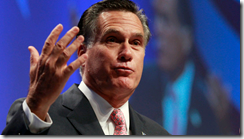
Roland S. Martin, Roland Martin Reports, writes,If Romney and his fellow Republican candidates haven’t bothered to shed much attention on the poor (the same goes for the debate moderators), why should we think the richest guy in the field would really give a flip about them?. . . .

Annie Tracy Samuel, Geopolitical Monitor, writes,An attack on Iran will not only bring Iranians together under the current regime; it will also unite them in support for a decision to acquire nuclear weapons. Even if it targeted Iranian nuclear facilities and was limited in scope, an attack will most likely be interpreted by Iranians as a declaration of war, an attempt at regime change, and a determination to prevent Iran from acquiring nuclear technology or enrichment capability of any nature. It will also convince them that accelerating that drive and ultimately possessing nuclear weapons is the only way to safeguard their regime and their country from future attack. Hans Blix, the former head of the International Atomic Energy Agency, recently put forward this view. “I don’t think you can convince anyone to give up an atomic programme through the threat of violence,” he stated. “Rather, it will cause them to move even faster on it, in order to defend themselves. … If the decision to build a bomb has not yet been taken, a military strike would ensure more than ever that it is”. . . .
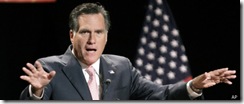
M. Ulric Killion writes,Photo: Sam Stein, Mitt Romney Campaign Disavows Pro-Gay Rights Flyer From 2002, Huffington Post, January 9, 2012;At least until now, this primary process has weakened, rather than strengthened, Romney. It has sowed doubts that he has any understanding of how average people live and opened up a slew of questions about his personal wealth and the taxes he pays. . . .Yet Romney won votes, not affection, a nod rather than an embrace (E.J. Dionne, Jr., Mitt Romney won in Florida but lost overall, The Washington Post, February 1, 2012). . . .

Bruce Riedel, Senior Fellow, Foreign Policy, Saban Center for Middle East Policy, Up Front Blog – The Brookings Institution, writes,Photo: Omar Sobhani / Reuters.The top Republican presidential candidates are trying to out-tough each other on Iran, calling President Obama too weak and threatening to use force. The prospect of war with Iran is usually discussed in isolation from the war we are already fighting in Afghanistan. That’s a big mistake, taking on a second war before finishing the one you’re in is a recipe for two disasters. . . .
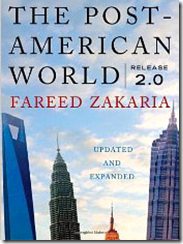
Obama has succeeded in preserving and even enhancing U.S. influence in this world precisely because he has recognized these new forces at work. He has traveled to the emerging nations and spoken admiringly of their rise. He replaced the old Western club and made the Group of 20 the central decision-making forum for global economic affairs. . . .By and large, you [Mitt Romney] have ridiculed this approach to foreign policy, arguing that you would instead expand the military, act unilaterally and talk unapologetically. That might appeal to Republican primary voters, but chest-thumping triumphalism won’t help you secure America’s interests or ideals in a world populated by powerful new players. . . .
Juan Williams writes,The language of GOP racial politics is heavy on euphemisms that allow the speaker to deny any responsibility for the racial content of his message. The code words in this game are “entitlement society” — as used by Mitt Romney — and “poor work ethic” and “food stamp president” — as used by Newt Gingrich. References to a lack of respect for the “Founding Fathers” and the “Constitution” also make certain ears perk up by demonizing anyone supposedly threatening core “old-fashioned American values.”The code also extends to attacks on legal immigrants, always carefully lumped in with illegal immigrants, as people seeking “amnesty” and taking jobs from Americans. . . .

M. Ulric Killion writes,Photo Source: Robert Kagan (View Bio); Alfred A. Knopf, 2012,“What would the world look like if America were to reduce its role as a global leader in order to focus all its energies on solving its problems at home? And is America really in decline? Robert Kagan, New York Times best-selling author and one of the country’s most influential strategic thinkers, paints a vivid, alarming picture of what the world might look like if the United States were truly to let its influence wane,” Writers’ Representatives, LLC: The World America Made. . . .On January 24, 2012, during his State of the Union address, President Obama also talked about America as the indispensable nation. According to President Obama, “Yes, the world is changing. No, we can’t control every event. But America remains the one indispensable nation in world affairs. And as long as I’m president, I intend to keep it that way,” (See State of the Union 2012: Obama speech full text, Washington Post, January 24, 2012). . . .
From Room for Debate - New York Times,“The candidate, whose results so far have been mixed, continues to be stymied by suspicions about his religion. But why are so many Americans uncomfortable with Mormonism?”. . . .
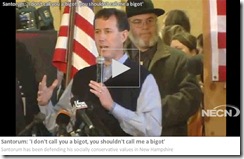
M. Ulric Killion writes,Source: Photo; Santorum: ‘I don’t call you a bigot, you shouldn’t call me a bigot’, NECN.com, January 7, 2012; See also Suzanne Gamboa, Rick Santorum Rebuked By Urban League On Comments About Black People On Public Assistance, Huffington Post, Jan 6, 2012.The Republic Conundrum: How can GOP candidates purport to speak for Americans, while vehemently in both speech and action seeking to deny them the grandest idea of all—an inclusive American society. . . .For instance, there are the problems of the GOP’s politics of racism, “an unabashed embracing of a brand of anti-Islam rhetoric” or Islamophobia, and gay bashing or anti-gay bigotry. . . .Weisberg actually presented several examples of misuses of the term, elitism, by both former and present GOP candidates. . . He eventually reached a critical conclusion that, “The problem with the GOP’s elite-bashing is not their definition but their contradictions”. . . .

Sarah Wildman, PBS, writes,Photo: AP Photo/David Goldman.Indeed, this week, as [Rick] Perry’s campaign foundered and fizzled, the Texan embraced a brand of Islamophobia championed by the Gingrich camp for many months now. The move represents a shift in Republican thinking, an unabashed embracing of a brand of anti-Islam rhetoric that is common among the far right leaders of Europe, and one that has become increasingly prevalent in American political discourse since the so-called “ground-zero mosque” controversy. . . .
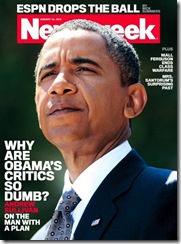
The Huffington Post writes,Last summer, Tina Brown’s title riled up the right with its controversial cover photo of Michele Bachmann. The magazine’s current issue immediately did the same. It features a story by writer Andrew Sullivan about President Obama. The cover headline? "Why Are Obama’s Critics So Dumb?"The article is a bit more nuanced. Sullivan writes that "Obama has delivered in a way that the unhinged right and purist left have yet to understand or absorb."

Photo: Caucus goers participate in the West Des Moines caucus at the Seven Flags Event Center in Clive, Iowa.Pew’s “political typology,” the latest iteration of which appeared last May, provides the best point of departure. That report used a statistical technique known as cluster analysis to identify four major pro-Republican groups: Staunch Conservatives (11 percent of registered voters), Main Street Conservatives (14 percent), Libertarians (10 percent), and “Disaffecteds” (11 percent). The Iowa entrance polls showed that Staunch Conservatives—the sorts of people most likely to identify with the Tea Party—preferred Santorum to any other candidate; Main Street Conservatives, who may be anything from Rotarians to country-clubbers, went for Romney; and of course Libertarians found a stalwart champion in Ron Paul.But who are the Disaffecteds? According to Pew, they are both anti-government and anti-big business. They are social conservatives with a deep antipathy to illegal immigration. But they are also the most financially insecure of all the groups—among Democrats and Independents as well as Republicans—and perhaps for that reason, less averse to a government that extends a helping hand to the downtrodden. For the most part, they are whites with no more than a high school education. Many report personal or family struggles with unemployment. . . .

M. Ulric Killion writes,Photo Source: Cheryl Senter for The New York Times, Mitt Romney at the Town Hall in Bedford, N.H., on Dec. 20, 2011; See, “Romney and his aides have designed his rhetoric to define pretty much all spending on entitlements, including provisions for the injured, unemployed, sick, disabled or elderly as benefits to the poor who, Romney implies, are undeserving”, Thomas B. Edsall, The Anti-Entitlement Strategy, New York Times, December 25, 2011.The Republican Conundrum — “how can a GOP candidate appeal to racists who don’t think they are racist without sounding racist?”. . . .— Cheryl Contee (Jill Tubman), Gingrich and Santorum Saving Lazy, Shiftless Social Parasite Black Folks from Themselves- Jack & Jill Politics, January 6, 2012.One would also think that by now the race card would have played itself out (See Republican Attacks Have Racist Undertones, January 6, 2012). Nonetheless, the controversial comments keep coming. For instance, we now have Newt Gingrich’s controversial comments, such as his food stamps comment; Mitt Romney’s controversial comments, such as his Anti-Entitlement Strategy; Rick Santorum’s pandering to “racist elements in the electorates,” such as his discourses of racial stereotypes and racial divisiveness; and even Ron Paul’s history of controversial comments. . . .

